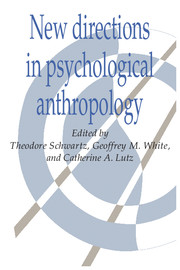Book contents
- Frontmatter
- Contents
- List of contributors
- Introduction
- I Cognition and social selves
- 1 Ethnopsychology
- 2 Cognitive anthropology
- 3 Schemes for schemata
- 4 The woman who climbed up the house: some limitations of schema theory
- II Learning to be human
- III The body's person
- IV Psychiatry and its contexts
- V Psychoanalytic approaches
- VI Disciplinary perspectives
- Index
4 - The woman who climbed up the house: some limitations of schema theory
Published online by Cambridge University Press: 05 June 2012
- Frontmatter
- Contents
- List of contributors
- Introduction
- I Cognition and social selves
- 1 Ethnopsychology
- 2 Cognitive anthropology
- 3 Schemes for schemata
- 4 The woman who climbed up the house: some limitations of schema theory
- II Learning to be human
- III The body's person
- IV Psychiatry and its contexts
- V Psychoanalytic approaches
- VI Disciplinary perspectives
- Index
Summary
In the late 1950s and early 1960s, cognitive anthropologists looked for cultural knowledge in the lexicon and analyzed semantic features as the key to the cognitive organization of this knowledge. The goal was to account for cultural competence much as the linguists of the day sought to account for linguistic competence. Over the ensuing three decades, the cognitivist position has been formulated and reformulated many times. Today, cultural genres and discourse have taken the place of the lexicon in theorists' concern and cultural schemas have replaced semantic features as the presumed mainstay of cognitive organization. Instead of theorizing cultural competence, the goal is to theorize the ways in which collectively interpreted experience comes to constitute the foundation of the individual's thoughts and feelings. In the spirit of contributing to the ongoing theoretical reformulation, I here consider some limitations of schema theory, especially those limitations that obscure the relevance of cultural schemas to social theory and to depth psychologies. First, I will describe the concept of schema.
A schema is a complicated knowledge structure – a schematized interpretive framework (see D'Andrade, this book). It is a living mental precipitate of past experiences, a precipitate that forms a sort of mental lens. Schemas are significant because they channel experience of the present, inform anticipation of the future, and play an important role in the (re)construction of memories of the past. To the extent that these schemas arise from experiences interpreted according to a collective history and tradition, they are powerful cultural phenomena as well as psychological ones.
- Type
- Chapter
- Information
- New Directions in Psychological Anthropology , pp. 68 - 80Publisher: Cambridge University PressPrint publication year: 1993



